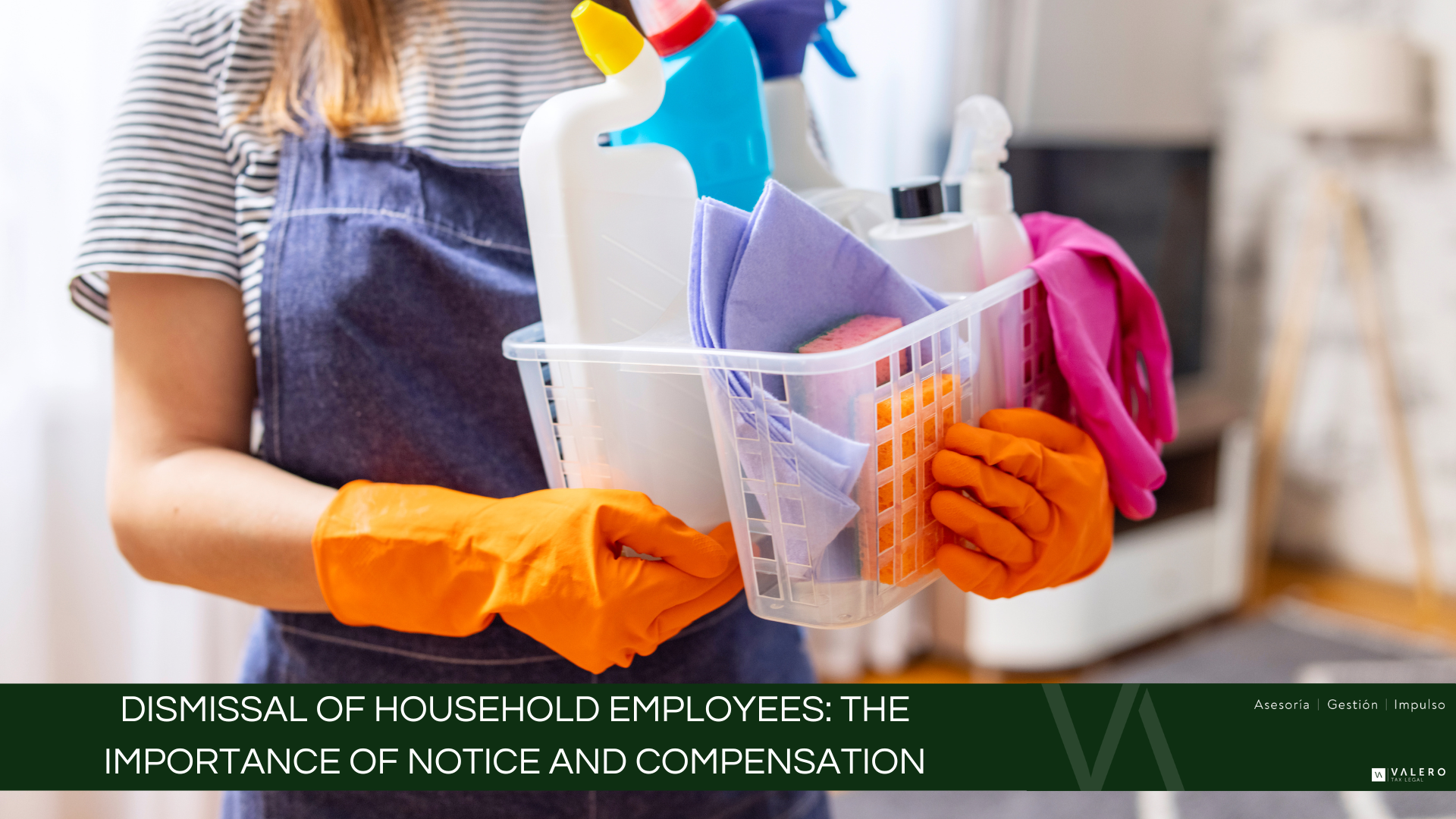Dismissal of Household Employees: The Importance of Notice and Compensation
A recent ruling by the Galicia High Court of Justice confirms that if notice is not given, financial compensation must be provided. Find out when this obligation applies and what rights employment law protects.

Date of dismissal: Her contract was terminated on 31 December 2023, but the official communication of the dismissal did not arrive until 2 January 2024.
Reason for dismissal: The employer claimed that, due to the deteriorating health of the head of the household, they required specialised care that the employee was unable to provide.
Employer's decision: To avoid legal issues, the dismissal was acknowledged as unfair, and compensation of 33 days per year worked was paid.
Employee's claim: Despite receiving the dismissal compensation, she demanded an additional payment for the 20 days of notice that had not been granted.
-
Article 11.2: Allows contract termination if there is a substantial change in family circumstances, justifying the end of the employment relationship.
-
Article 11.3: States that, in such cases, the employer must provide at least 20 days’ notice (or 7 days if the employee has been in the role for less than a year). If this notice is not given, the employee is entitled to financial compensation equivalent to the missing days.
-
The contract termination was based on a change in family circumstances, which is legally recognised, but this does not exempt the employer from complying with the notice period.
-
Although the employer acknowledged the dismissal as unfair and paid compensation, this does not replace the obligation to give notice or provide financial compensation.
-
Since the employee did not receive the required notice period, she was entitled to be compensated for those unnotified days.
-
It is crucial to understand the applicable regulations and not assume that paying dismissal compensation covers all legal obligations.
-
If dismissing an employee for justified reasons, the notice period must be respected, or financial compensation must be provided instead.
-
Knowing and defending your employment rights is essential, particularly regarding contract termination.If the notice period is not respected, you are entitled to claim compensation, as confirmed by this ruling.
RELATED CONTENT
-
Tax Incentives for SMEs: Can Your Business Benefit?
Businesses classified as Small Business Entities (SBEs) in Spain can access a range of tax incentives designed to reduce their tax burden and promote financial stability. From tax base reduction to deductions for bad debts and accelerated depreciation, these advantages can significantly impact an SME’s cash flow and long-term viability. Find out if your business qualifies.
-
What to Do If an Invoice Doesn’t Specify Whether to Apply Withholding Tax?
If you receive an invoice without a clear indication of whether withholding tax applies, the obligation to withhold remains with the payer. In certain cases—such as professional services—withholding tax must still be deducted, even if not specified on the invoice. Find out when and how to apply it correctly to avoid tax issues.
-
Key Updates in the Immigration Regulations 2025: Opportunities for Regularization
Recent modifications to the Immigration Regulations, introduced by Royal Decree 1155/2024, bring significant improvements for the regularization and residence of foreign nationals in Spain. With a focus on streamlining procedures, enhancing legal security, and creating new opportunities for social and labour integration, these reforms represent a major step forward in immigration policy.
